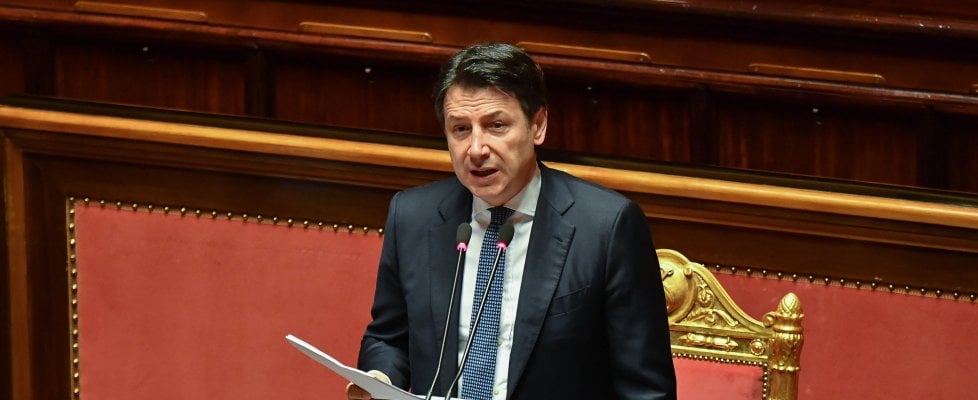The health emergency caused by the worldwide spread of the new Coronavirus threatens to undermine liberal democracies, open society and the rule of law. As Hayek taught, emergencies have always been the pretext for eroding individual freedom.
The crisis was an opportunity to reopen the confrontation between authoritarian governments and liberal democrat governments. There has been praise on many sides for dictatorships which would be better suited to countering an epidemic by being able to restrict the freedoms of citizens without limits, not having to comply with any formalities and not having to submit to any limits and controls. The reality is quite different because the opacity and corruption of authoritarian regimes have played a decisive role in the incorrect reaction to the appearance of the virus and inefficient.
As the ALDE has rightly denounced, the emergency is in danger of being exploited to adopt repressive measures that have no use in combating the spread of the virus.
Free countries face a crucial challenge for their survival: being able to overcome the very serious crisis with the instruments of the rule of law without resorting to risky authoritarian shortcuts.
In Italy, the government has imposed a lockdown across the entire national territory. The various measures adopted have severely limited the fundamental freedoms and rights of citizens: personal freedom, freedom of movement, freedom of assembly, religious freedom, private economic initiative, the exercise of their religious faith, the right to property.
Moreover, these measures were initially adopted by means of the DPCM, an administrative act not having the legal force, despite the express law reserves placed by the Constitution to protect fundamental rights. It is true that the aforementioned decrees recalled a decree-law (d.l. n. 6/2020) but the Doctrine has also raised numerous doubts about their legitimacy.
First of all because the aforementioned decree provided for the adoption of measures limited to certain red areas, while the DPCM covered the entire national territory. In addition, because, by containing the decree-law excessively general rules, it was the Dpcms to lay down such limitations, in violation of the law reserves. With reference to limitations of freedom (art. 13 of the Constitution), they were adopted without providing for judicial control, despite the express constitutional provision of the reserve of jurisdiction. It was only later that this situation was overcome by the adoption of a new decree-law.
The measures adopted must respect the principle of proportionality, and must therefore be those best suited to achieving the desired results and not replaceable by other less stringent measures. Legitimate doubts have arisen about the impossibility of identifying other measures equally aimed at combating and limiting the spread of the virus but with less sacrifice of personal freedoms.
The restrictions must above all be temporary. The lack of a clear and precise temporal horizon, seen the impossibility to foresee the cessation of the health emergency, risks to transform in definitive the provisional. Unfortunately, past experience reminds us of several cases of exceptional laws, adopted in the name of real or presumed emergencies, then become ordinary laws.
The impression is bleak that such impositions were adopted because of the lack of confidence of the rulers about the self-control skills of the population which instead showed a great sense of responsibility.
We must also complain about the lack of transparency and clarity about the reasons, particularly scientific, underlying the decisions. Citizens have the right to know the reasons why they must renounce their freedoms and the procedure followed in order
to reach those conclusions. Added to this is the great legislative and communicative confusion. Government and local government Regulations have overlapped, often contradictory, there have been announcements, leaks, denials, which have made it difficult for the citizen to extricate Himself from this chaos. The health emergency also threatens to suspend the foundations of Parliamentary Democracy.Several elections and a constitutional referendum have been postponed; they are not allowed, given the ban of gatherings, the demonstrations (protest); Parliamentary activity has suffered a strong slowdown.
No one wants to deny the gravity and the exceptional nature of an unprecedented crisis or denounce alarmist totalitarian drifts, we just want to draw attention to the serious risks to the livelihood of our liberal democracies and urge them to keep their guard up.
Individual liberties can suffer contractions (necessary, not arbitrary and limited in time) in times of emergency but cannot be denied. A careful balance must be made between the assets at stake, since freedom cannot be sacrificed on the altar of safety. We can use the instruments provided for in our constitutional systems without forcing them to undermine the rule of law.
The lesson to bear in mind for future crises is that the defence of fundamental rights and freedoms knows no exceptions, once a principle is violated it is impossible to go back. It will be essential not to draw the wrong lessons from the crisis: it is not the end of liberalism and democracy that no responsibility has about the birth and spread of the emergency. Statism, centralization of powers, intervention, authoritarianism do not solve problems. The forced restriction of our freedom must make us appreciate even more its importance and be alarmed about the ease with which it can be lost, it must not convince us that we can do without it. We must defend globalisation and economic freedom, the only way to restart and overcome the imminent economic crisis, rather
than invoking state intervention.
The emergency can be overcome and the virus can be eradicated without sacrificing our freedoms and democracies.
Avv. Nicola Galati
Dott.ssa Lorena Villa



